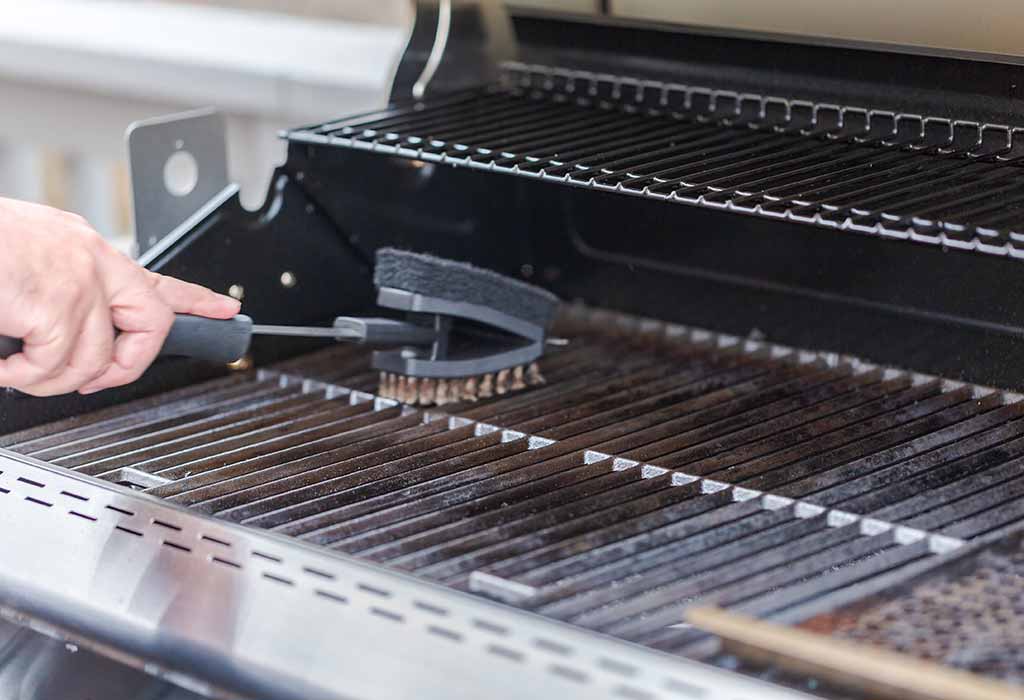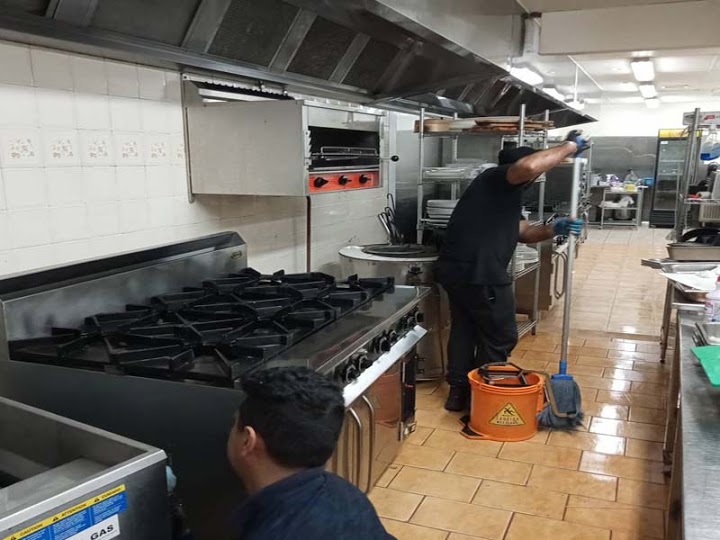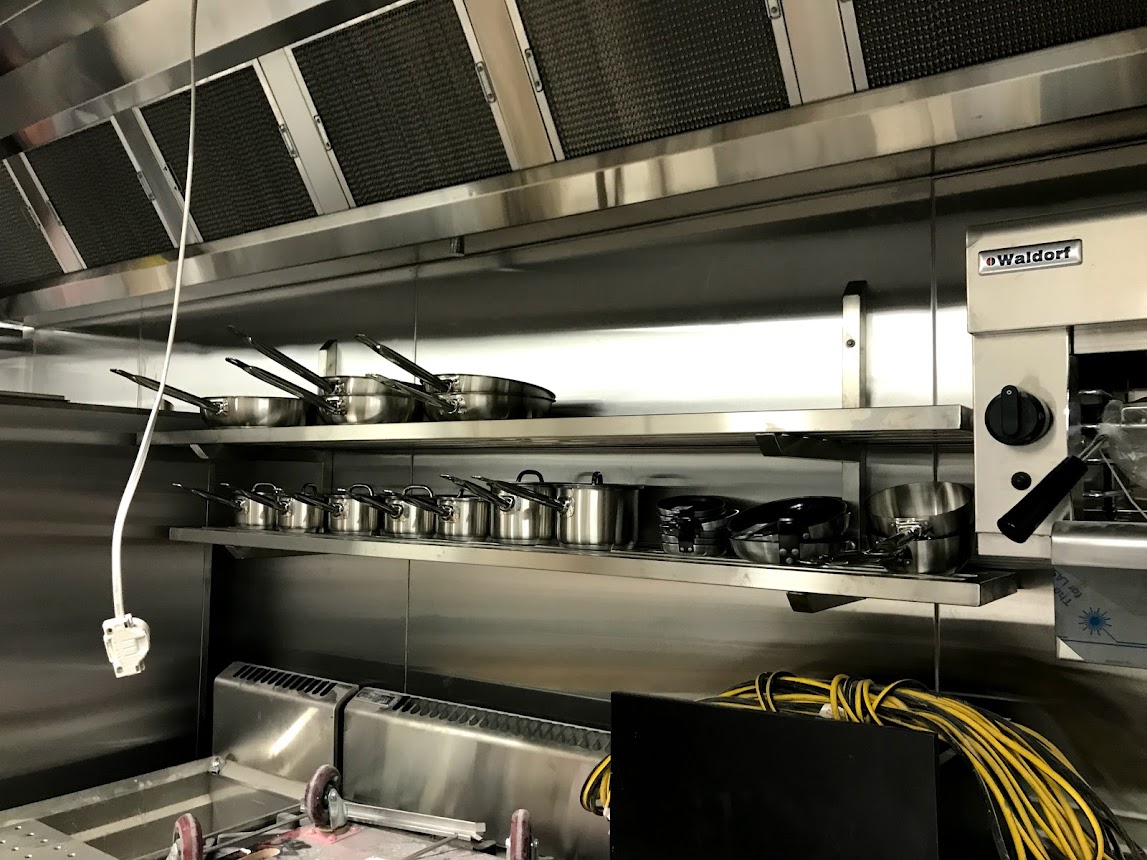As grill season is soon approaching, it’s time to get your gear ready for another season of outdoor cookouts, burgers, and barbecues. Clean the entire grill of any leftovers from last summer’s BBQ adventures before you begin cooking. Even if you cleaned the grill before storing it for the winter, it’s necessary to clean the bbq grill thoroughly with hot soapy water and a grill brush at the start of each new season.
The same grilling methods that produce delectable char marks on your burgers and steaks also result in carbon deposits. These will sit on practically every grill surface, including the cast iron grill grates, hood, firebox interior, flavouring bars, and burner tubes (on gas grills).
These carbon deposits will eventually lead to rusting on a dirty grill, which means it’s not just the flavour of your food that will suffer—the function and longevity of your barbecue grills will be affected.
These crusty carbon deposits are not just unsightly; grease and sweet sauces can adhere to them and contain bacteria. Excessive carbon accumulation can also cause the charcoal grills to heat unevenly, fail to achieve full operational temperature, and cause the gas-burner tubes to break prematurely.
After each use, get the grill clean and cooking grates with a quick scrub to make it easier to clean at the start of each new cooking season.
Grill Brush and Other Cleaning Materials
To clean your grill, you’ll need some basic supplies:
- A grill brush for scrubbing the grates
- A putty knife, bbq scraper, or old toothbrush for cleaning out the firebox
- A garden hose with a spray nozzle
- A sponge or cloths
- Some cleaner (a degreaser, stainless steel cleaner, all-purpose cleaner, or vinegar will work)
- Soapy water or washing up liquid cleaner
If you have a gas grill, you’ll also need:
- A can of compressed air (optional but helpful)
- A small paintbrush (optional)
Cleaning Your Grill Grates
Preheat
To begin cleaning a gas grill, turn it on, close the hood, and let it come up to temperature. Give at least 30 minutes for every stuck-on food or debris to dissolve. Then, dip the wire brush in a warm, soapy water bucket and clean the carbon off the grates. After that, switch off the gas and unhook and remove the propane tank. Allow the grill to cool completely before resuming use.
Place the used charcoal briquettes in a metal container designed for charcoal grills. Scrape away any caked-on charcoal dust and debris with a putty knife. To clean the grates, you can also use a wire brush.
Soak in Hot Soapy Water
The firebox interior is now visible and accessible after the grill grates have been removed. Begin by placing an empty bucket behind the firebox, right beneath the grease tray entrance, to capture the soapy water and debris flushed out. Scrape any caked-on crud from the firebox with a plastic putty knife.
To remove any leftover loose material, use a wet/dry vacuum. Because damp/dry vacuums are typically used in the workshop, you shouldn’t feel awful about using one to suck up the crud that’s accumulated in your grill. After cleaning the firebox, rinse it with a garden hose.
Scrub Everything
Remove the grates and panels once soaked and scrub them with a wire brush. For highly resistant burnt on food, make a mixture of white vinegar and baking soda and apply it directly to the most complex caked-on particles of dirt and food debris.
To avoid rusting, thoroughly rinse and dry cast-iron grates. It is an excellent opportunity to inspect the porcelain grates for chipping, leading to corrosion. Touch up any cracks or chips with a light coating touch-up paint. You can also spray some cooking oil or vegetable oil to season the charcoal grate.
Inspect your burners and cast iron hotplates for evidence of corrosion or obstructions in the row of flame-emitting holes. If your grill is left unused for an extended period, spiders will lay eggs in the burner tubing—brushback and forth across the surface with grill brushes.
Wipe it Down
Next, clean the outside of your grill with an all-purpose cleaner and a sponge. Don’t forget to clean the control knobs (on gas grills) and any side shelves or tables.
If you have a charcoal bbq grill, remove the ashes from the bottom of the firebox. You can dump them in a metal trash can or bucket.
Reassemble and Relight
Once everything is clean, put your gas bbq back together, ensuring that all the parts are properly secured. If you’re using a gas barbecue grill, remember to reattach the propane tank before turning on the gas. Test all the knobs to make sure they’re working correctly.
For a charcoal grill, fill the firebox with fresh briquettes, light them, and allow them to reach temperature before cooking on it.
Clean Your Grill Cover
Your grill’s cover will need to be cleaned from time to time. The best way to clean a grill cover that has stuck on food is to spray it down with a hose and scrub it with warm soapy water. Allow it to air dry after properly rinsing it.
You may also wash it on a gentle cycle with cold water and light detergent in your washing machine with a little baking soda. Allow it to air dry or set it in a low-heat drier.
Fire it up and enjoy it once your grill is clean and ready to go!
Frequently Asked Questions
How frequently should I clean my grill?
Always clean your grill before using it. If you cannot do so, attempt to clean it at least once a week.
Can I clean my BBQ grill using oven cleaner?
Yes, grills may be cleaned with hot water and some cleaning agent. Wear gloves and a mask because the fumes can be dangerous. Also, after applying oven cleaner, carefully rinse the grill with warm water. You may also use some baking soda to clean stainless steel.
How do you clean a stainless steel grill?
To clean a stainless steel grill, use a vinegar-and-water solution or some baking soda and hot water. Scrub any dirt or filth from the grill using a sponge or towel. Rinse it with clean warm water and pat it dry with a towel.
To clean a stainless steel grill, never use strong chemicals or abrasive products.
How can I get the rust off my barbecue grates?
If your grill grates are rusted, try washing them with a wire brush or cleaning them with a vinegar-and-water solution. Most of the time, warm soapy water works for cleaning stainless steel, including the hot bars.
It is ideal to clean a bbq or still warm grill and bbq plates of excess food and excess grease before you use it again. The food cooked will taste so much better since there is no dirt and grime attached on the cooking surface. You can use a spray bottle and paper towel to keep a bbq clean.
Do I need to grease my barbecue grates?
Oiling your grill grates prevents food from sticking to them. Apply a light coat of oil before cooking.



